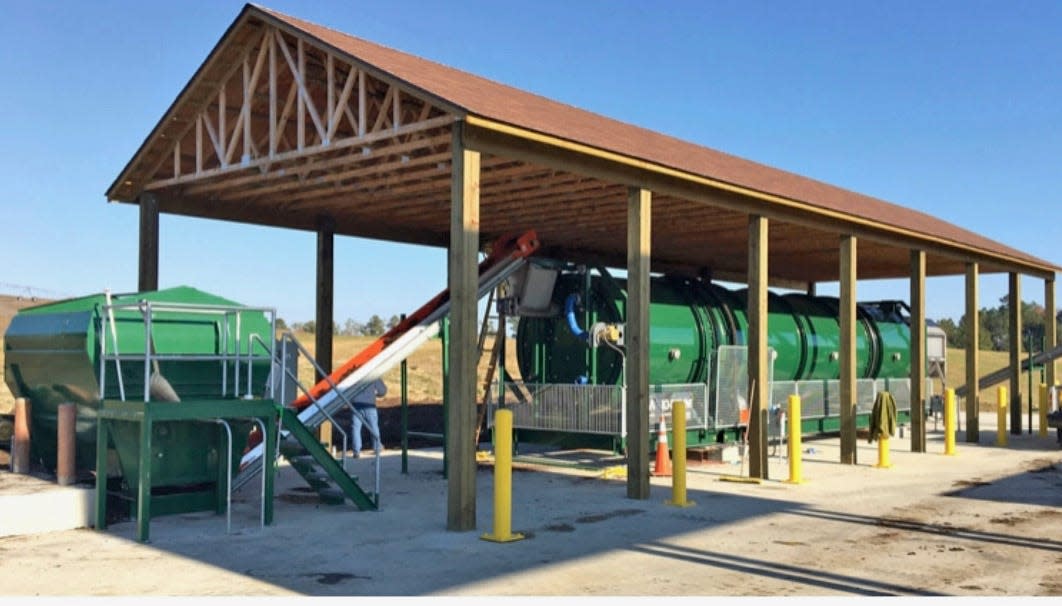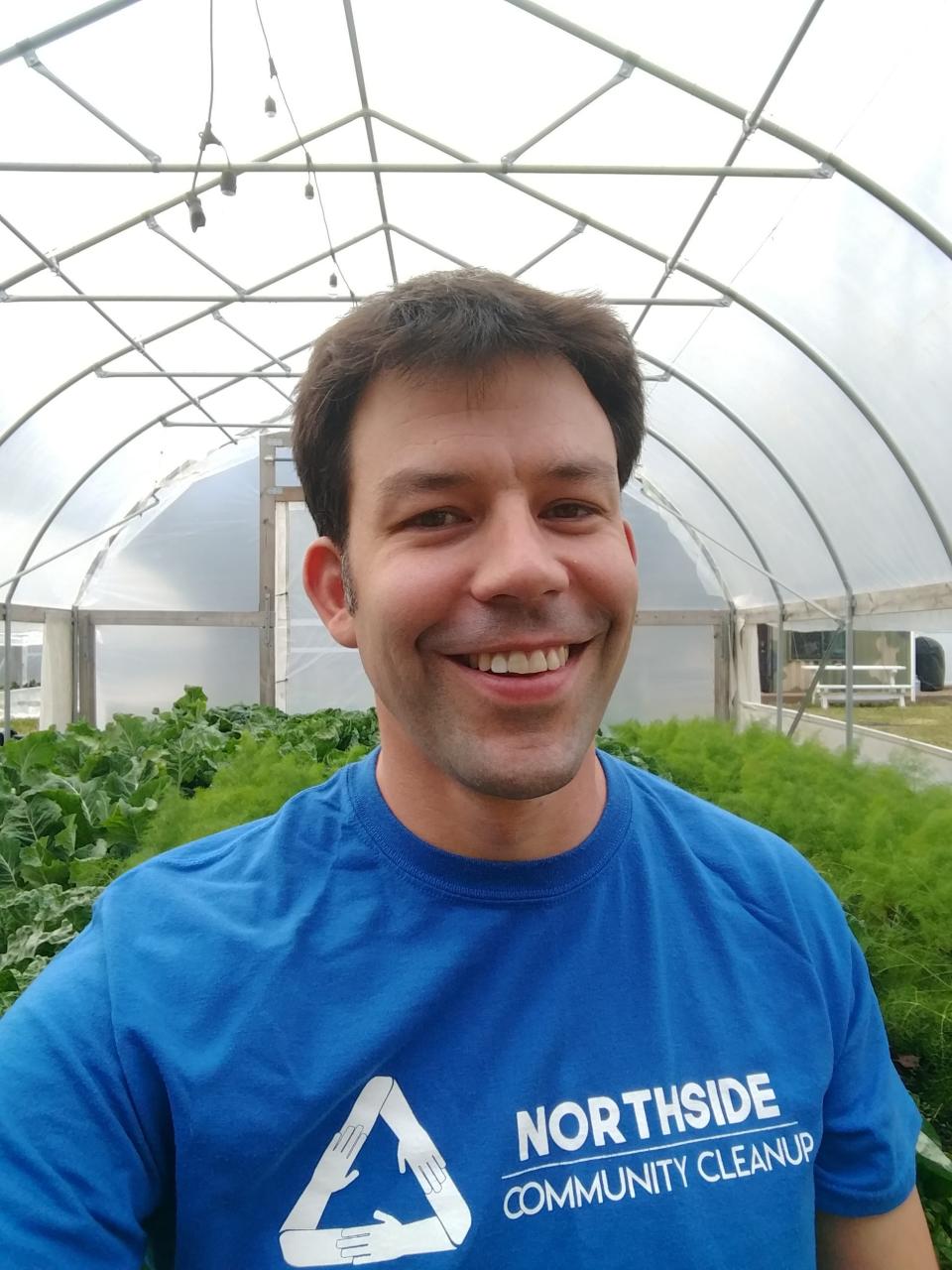Composting now can prevent future landfill crisis

A cursory survey of composting practices by denizens at my local watering hole revealed a great diversity of methods by which folks manage their food waste. One neighbor keeps a cup next to the kitchen sink for food scraps that gets emptied daily into a pile between two azaleas, another tosses everything down the garbage disposal (not recommended), two neighbors diverted food waste to livestock (chickens and goats), and several folks just threw everything into their trash bin. I was most impressed to hear about the coffee grounds being diverted from someone’s office to be used for vermicomposting – feeding worms to generate a rich organic soil amendment — learn more at https://composting.ces.ncsu.edu/vermicomposting-2/.
While there is no one right way to divert food waste, there are certainly better practices than others. For example, it’s not a good idea to use your sink drain as a trash can because food and grease can cause sanitary sewer overflows and blockages that cost money and can impact our shared environmental health. Another shared resource to consider is our landfill. Every time we dispose of food waste into the trash, precious space is taken up in a rapidly shrinking landfill. At the current rate, the New Hanover County Landfill has 28 years left before it’s full and we’ll be forced to ship trash to another county because no new landfills will be permitted in New Hanover County.
Events like Hurricane Florence can take five to 10 years of life off the landfill in one blow. That means we are only a couple of storms away from having no landfill – this is a real emergency.
More than 60 percent of what goes into the landfill is organic, meaning more than half of what goes to the landfill could be diverted and turned into something useful like compost. Organic material left to rot in the landfill produces harmful greenhouse gas emissions like methane. Every citizen in the county can contribute to maximizing our landfill asset and extend the landfill’s life. You can create your own backyard composting system at home — https://composting.ces.ncsu.edu/home-composting/. If you don’t have the ability to compost at home, New Hanover County residents can drop off unpackaged food waste at the county’s composter or HazWagon free of charge. For those who like the convenience of a pick-up service, you can even subscribe to a weekly compost collection at your home or business through the Wilmington Compost Company (https://www.wilmingtoncompostcompany.com/).
I compost everything I can at my home from dryer lint to the cat hair in my vacuum. It’s a fun game to challenge myself to see how few garbage bags I send to the landfill. Combined with recycling, I discovered that by keeping food waste out of the trash bin, there is no smell, there are no bugs, and instead of taking out the trash every week, now it’s less than once a month, saving me money, time, and labor.
New Hanover County has done a great job developing its composting program (https://recycling.nhcgov.com/), but we are still only diverting a fraction of what could be composted. The New Hanover County composter, nicknamed Huckleberry, produces about 75 cubic yards of compost every three days, while 1,800 tons of municipal solid waste enters the landfill daily. Waste is a big problem needing big solutions. Serious investment is needed to save our landfill from filling up and becoming the 22nd orphaned landfill in New Hanover County (the most in North Carolina). Revenue from landfilling only happens once and leaves behind toxic liabilities, whereas recycling creates revenue over and over in addition to creating jobs. Like the referendum for a quarter-cent sales tax increase on the November ballot to pay for shared resources like public transportation, I hope that local leaders and residents also see the need to invest in more comprehensive recycling and waste management. Investing now saves more money later.
The end result of recycling organic wastes is compost, which can be used almost anywhere in the landscape to improve soil health. Compost helps retain nutrients and water and when applied to turf or garden beds helps plants stay healthy with less need for irrigation. According to the Natural Resource Conservation Service, increasing the organic matter in the top six inches of the soil by one percent can increase soil’s water retention capacity to 27,000 gallons per acre. If everyone top-dressed their lawns with just 1/8” of quality, finished compost, we could significantly reduce flooding potential and the need for fertilizers, improve water quality, and improve the health of our landscapes. If you are interested in sharing your passion for compost, check out the local advocacy group, Coastal Composting Council at https://www.facebook.com/coastalcompostcouncil/.

Matt Collogan is the Consumer Horticulture Agent for NC Cooperative Extension – New Hanover County Center and Arboretum. The plant clinic is open 10 a.-4 p.m. Monday through Friday, and the Arboretum grounds are free and open daily 8 a.m. – 5 p.m., located at 6206 Oleander Drive, Wilmington. Collogan can be reached at 910-798-7660 or mcollogan@nhcgov.com.
This article originally appeared on Wilmington StarNews: Compost now to prevent future landfill crisis

